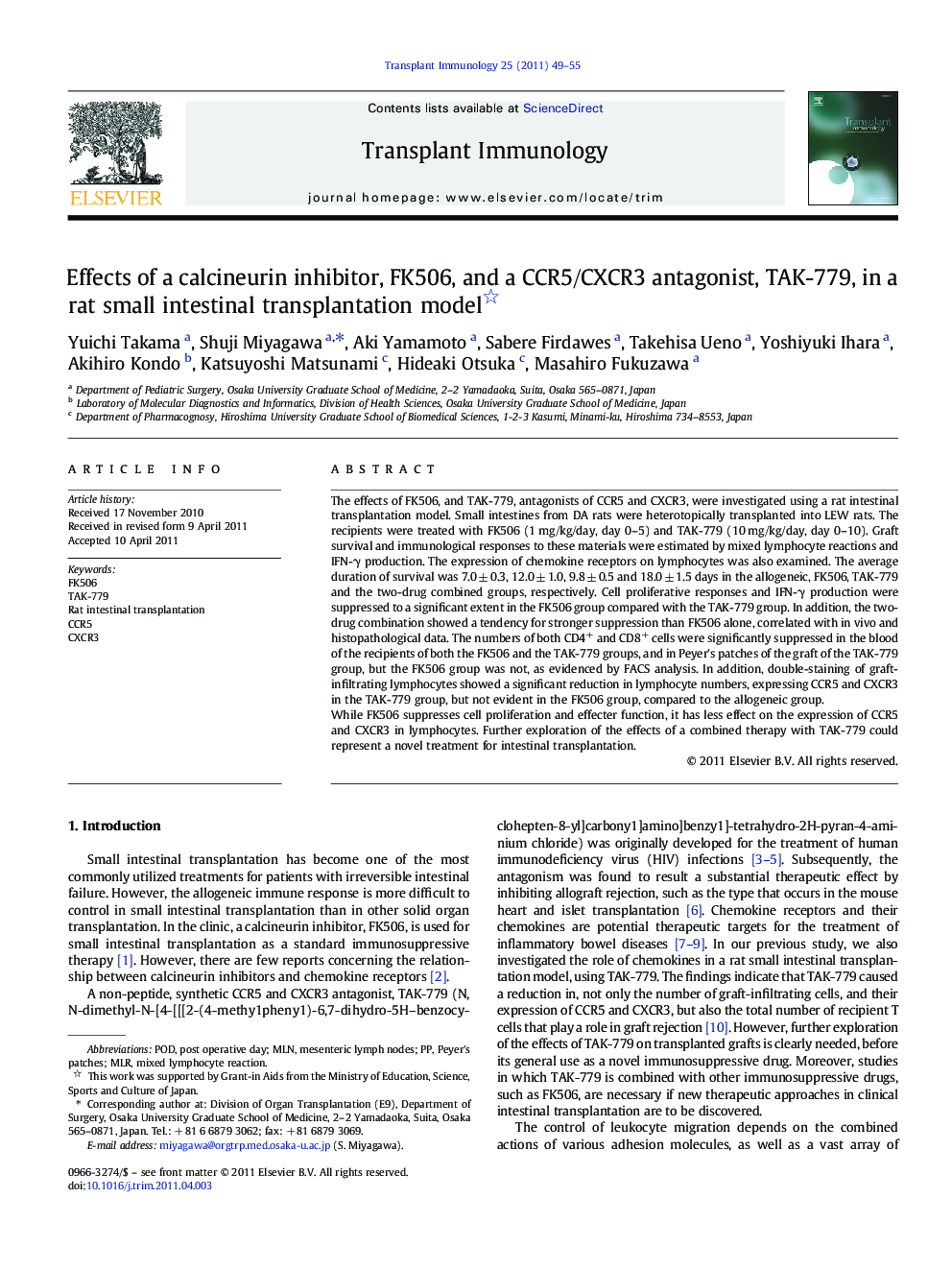| Article ID | Journal | Published Year | Pages | File Type |
|---|---|---|---|---|
| 3392190 | Transplant Immunology | 2011 | 7 Pages |
The effects of FK506, and TAK-779, antagonists of CCR5 and CXCR3, were investigated using a rat intestinal transplantation model. Small intestines from DA rats were heterotopically transplanted into LEW rats. The recipients were treated with FK506 (1 mg/kg/day, day 0–5) and TAK-779 (10 mg/kg/day, day 0–10). Graft survival and immunological responses to these materials were estimated by mixed lymphocyte reactions and IFN-γ production. The expression of chemokine receptors on lymphocytes was also examined. The average duration of survival was 7.0 ± 0.3, 12.0 ± 1.0, 9.8 ± 0.5 and 18.0 ± 1.5 days in the allogeneic, FK506, TAK-779 and the two-drug combined groups, respectively. Cell proliferative responses and IFN-γ production were suppressed to a significant extent in the FK506 group compared with the TAK-779 group. In addition, the two-drug combination showed a tendency for stronger suppression than FK506 alone, correlated with in vivo and histopathological data. The numbers of both CD4+ and CD8+ cells were significantly suppressed in the blood of the recipients of both the FK506 and the TAK-779 groups, and in Peyer's patches of the graft of the TAK-779 group, but the FK506 group was not, as evidenced by FACS analysis. In addition, double-staining of graft-infiltrating lymphocytes showed a significant reduction in lymphocyte numbers, expressing CCR5 and CXCR3 in the TAK-779 group, but not evident in the FK506 group, compared to the allogeneic group.While FK506 suppresses cell proliferation and effecter function, it has less effect on the expression of CCR5 and CXCR3 in lymphocytes. Further exploration of the effects of a combined therapy with TAK-779 could represent a novel treatment for intestinal transplantation.
Research Highlights► FK506 and TAK-779 prolong rat intestinal allograft survival via different mechanisms. ► FK506 suppresses cell proliferation. ► FK506 has less effect on the expression of chemokine receptors. ► TAK-779 inhibits the migration of T cells but not T cell proliferation.
